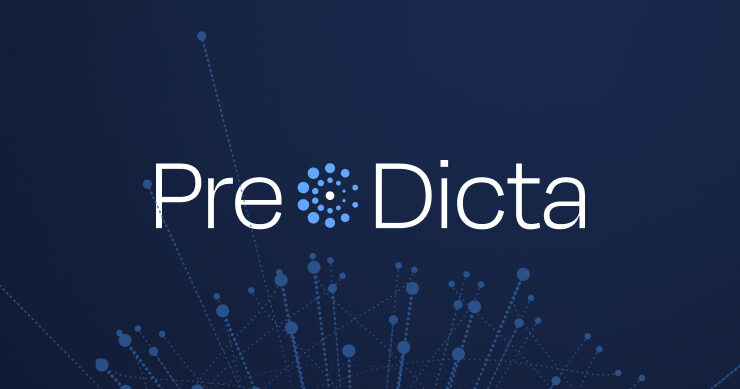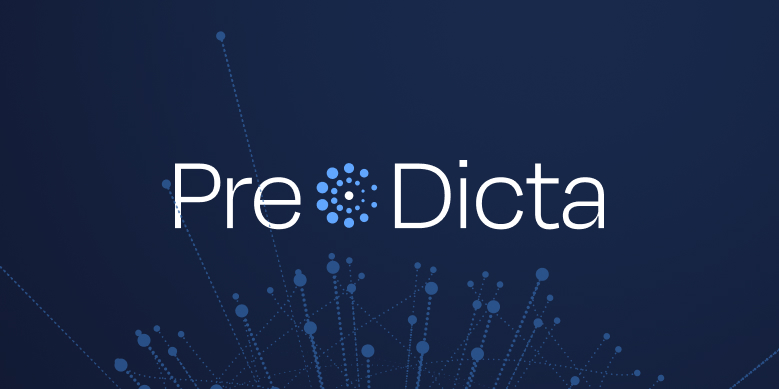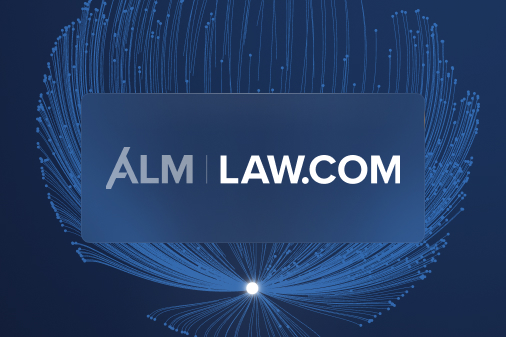Understanding Legal Analytics
What You Need to Know
- Legal analytics enhances decision-making through data-driven insights.
- Predictive AI applications in legal settings aim to improve efficiency and accessibility.
- Challenges include ethical considerations and the need for human expertise.
- The future of legal analytics is promising, with advancements in AI expected.
In recent years, the legal profession has seen a surge in the application of artificial intelligence (AI) in the administration of justice. A key statistic reveals that the use of AI is rapidly increasing, driven by its potential advantages despite the associated risks. This trend reflects a broader shift towards data-driven decision-making, which has become indispensable in modern legal practice. Legal analytics, a field that harnesses data analysis and AI to analyze legal documents and litigation data, is becoming a cornerstone of effective law practice.
This growing importance of legal analytics is underscored by its adoption among law firms, particularly those in the Am Law 200. These firms leverage analytics to improve efficiency, enhance case predictions, and bolster decision-making processes. As the legal landscape evolves, the reliance on data-driven approaches is expected to increase, positioning legal analytics as a vital tool for legal professionals navigating complex cases.
Understanding Legal Analytics
Legal analytics has become a linchpin in the legal profession, offering insights that can transform the way law firms operate. A telling statistic indicates that AI can significantly reduce the administrative burden in legal systems. For instance, the Crown Courts in England and Wales ended 2022 with over 60,000 outstanding cases, highlighting the need for innovative solutions. Legal professionals increasingly rely on analytics to make strategic, data-driven decisions, allowing them to allocate resources more effectively and prioritize cases that require immediate attention.
Modern legal analytics tools provide a wealth of information through the analysis of various datasets, including past case outcomes and judicial behaviors. These tools can identify patterns and trends that would be challenging to discern through traditional methods. By employing advanced algorithms, legal analytics helps professionals develop comprehensive strategies that improve their chances of success in litigation.
The Role of AI in Legal Analytics
AI has emerged as a powerful ally in the realm of legal analytics, offering tools that make justice more accessible. A striking statistic shows that AI can help individuals who cannot afford human lawyers, thus democratizing legal services. Tools like Legal Robot utilize machine learning to analyze contracts, enabling users to understand complex legal language better and draft more effective agreements.
As AI technology continues to advance, it is set to revolutionize how legal professionals approach their work. By automating routine tasks and providing instant analysis, AI applications allow lawyers to focus their expertise on more nuanced legal matters. This transition not only enhances productivity but also improves the overall quality of legal services offered to clients.
Applications of Legal Analytics
The applications of legal analytics are as diverse as they are impactful. A notable statistic indicates that AI is currently deployed for auxiliary administrative functions in the courtroom, such as communication among judicial personnel and resource allocation, which can indirectly influence case outcomes. This versatility makes legal analytics an invaluable resource for law firms seeking a competitive edge.
Legal analytics encompasses various areas of application, including litigation strategy, e-Discovery, contract review, financial assessments, and patent analysis. By analyzing extensive datasets, law firms can craft tailored strategies that consider all relevant factors. This comprehensive approach not only improves case outcomes but also enhances the overall efficiency of legal processes.
Areas of Application for Legal Analytics
Benefits of Legal Analytics
Legal analytics offers a multitude of benefits that can enhance the practice of law. A key statistic reveals that algorithms could improve the fairness of judgments by adhering strictly to legal precedents and minimizing personal biases. By relying on data-driven insights, legal professionals can make informed decisions that align with established legal principles.
Furthermore, legal analytics provides various analytics and reporting features aimed at facilitating strategic decision-making. The ability to tap into vast datasets allows law firms to identify trends, forecast outcomes, and adapt their strategies accordingly. This capability not only bolsters the firm’s standing but also ensures that clients receive the best possible representation.
Challenges and Ethical Considerations
Despite the numerous advantages of legal analytics, challenges and ethical considerations loom large. A key statistic highlights that the integration of AI into the justice system raises questions about legal authority, discretion in decision-making, and the translation of legal language into programmable code. These concerns necessitate a careful examination of how AI tools are deployed within the legal framework.
In addressing these challenges, it is essential to recognize that AI does not analyze the facts of a case or conduct legal research to surface outcomes. This limitation emphasizes the importance of human expertise in interpreting and applying legal principles. Legal professionals must remain vigilant to ensure that AI tools serve as aids rather than replacements for their nuanced understanding of the law.
The Future of Legal Analytics
The future of legal analytics is promising, with advancements in AI suggesting a transformative impact on the legal field. A significant statistic indicates that the increasing use of AI in non-legal sectors implies similar advancements in the legal domain are likely within the next decade. Law firms that embrace these changes stand to gain a competitive advantage in a rapidly evolving landscape.
As AI technology continues to improve, legal analytics tools will become more sophisticated, enabling lawyers to predict outcomes with greater accuracy. The application of behavioral AI, which analyzes various factors influencing judicial decisions, is an exciting development that holds great potential for enhancing legal practice. By integrating these tools into their workflows, law firms can better serve their clients and navigate the complexities of the legal system.
Impact on Judicial Decision-Making
Judicial decision-making is often influenced by extraneous factors, leading to significant variations in outcomes. A noteworthy statistic reveals that factors such as the timing of food breaks can sway judicial rulings. Understanding these influences is crucial for legal professionals seeking to mitigate biases in legal proceedings.
Legal analytics plays a vital role in illuminating these influences by analyzing patterns in judicial behavior. By cross-referencing cases based on their characteristic attributes, law firms can better understand how external factors might impact case outcomes. This knowledge empowers legal professionals to craft more compelling arguments and anticipate challenges that may arise during litigation.
Legal Analytics in Different Jurisdictions
The landscape of legal analytics varies across jurisdictions, with some areas more advanced than others. A key statistic indicates that empirical literature on judicial behavior in Australia and New Zealand is relatively sparse compared to the United States. This gap presents an opportunity for legal professionals in these regions to leverage insights from more established jurisdictions to enhance their practice.
Legal analytics tools can provide valuable insights into jurisdiction-specific trends, helping lawyers adapt their strategies accordingly. By understanding the differences in judicial behavior and decision-making processes, legal professionals can better serve their clients and navigate the complexities of their legal systems. The potential for growth in this field is immense, as jurisdictions increasingly recognize the value of data-driven decision-making.
Data Quality and Reliability in Legal Analytics
The foundation of effective legal analytics lies in the quality and reliability of the data used. A key statistic reveals that AI requires large datasets to function effectively; for example, to achieve a 95% accuracy in recognizing an object, around 100,000 images would be needed. This highlights the need for law firms to ensure that their data is not only abundant but also accurate and relevant.
Legal analytics relies on data from over 10 million patent applications, showcasing the vast amounts of information that can be analyzed. Factors such as data volume, accuracy, relevance, and processing play crucial roles in determining the efficacy of analytics tools. By prioritizing data quality, law firms can enhance their decision-making capabilities and improve overall outcomes in legal proceedings.
Data Volume
Ensures diverse datasets for analytics.
Data Accuracy
Critical for reliable analytics outcomes.
Data Relevance
Ensures the data aligns with legal contexts.
Data Processing
Vital for extracting insights from data.
Legal Analytics Tools and Platforms
 The rise of legal analytics has given birth to numerous tools and platforms designed to streamline legal processes. A noteworthy statistic indicates that a machine learning application developed by academics claims to predict Supreme Court decisions with an accuracy of 70.2% and individual justices’ voting behavior with 71.9% accuracy. These advancements signal a new era in legal decision-making, where data-driven tools augment traditional legal practices.
The rise of legal analytics has given birth to numerous tools and platforms designed to streamline legal processes. A noteworthy statistic indicates that a machine learning application developed by academics claims to predict Supreme Court decisions with an accuracy of 70.2% and individual justices’ voting behavior with 71.9% accuracy. These advancements signal a new era in legal decision-making, where data-driven tools augment traditional legal practices.
Platforms like the Patent Analytics Platform, which provides data from over 10 million patent applications, exemplify the power of legal analytics. By offering comprehensive analytics tools, these platforms empower legal professionals to make informed decisions based on a wealth of data. Embracing these innovations allows law firms to enhance their strategies and ultimately improve client outcomes.
Legal Analytics and Access to Justice
Legal analytics holds the potential to improve efficiency in judicial processes, but it also raises concerns about bias and the loss of human compassion in decision-making. The balance between leveraging technology and maintaining the human touch in legal practice is a critical consideration for legal professionals. Using AI tools responsibly can help ensure that justice remains accessible to all.
Tools like Legal Robot utilize machine learning to analyze contracts, enabling users to draft better agreements quickly. By democratizing access to legal services, these innovations can empower individuals and small businesses that may otherwise struggle to afford legal representation. The future of legal analytics lies in its ability to enhance access to justice while preserving the essential elements of human empathy and understanding.
The Role of Human Expertise in Legal Analytics
While AI and data analytics provide powerful tools, the role of human expertise remains irreplaceable in legal practice. A significant statistic points out that judges contribute to case management, public education, and maintaining the rule of law, aspects that AI cannot replicate. This underscores the importance of combining AI tools with the nuanced understanding of legal professionals.
Legal analytics enhances the decision-making process, but it does not replace the critical thinking and moral judgment that human experts bring to the table. By integrating AI insights with their own knowledge and experience, legal professionals can create a more robust and effective approach to legal practice. This synergy between human expertise and advanced analytics is essential for navigating the complexities of the legal system.
FAQ Section
1. What is legal analytics?
Legal analytics refers to the application of data analysis and artificial intelligence to legal documents and litigation data, enabling law firms to make data-driven decisions that enhance their practice.
2. How is AI used in legal analytics?
AI is used in legal analytics tanalyze large datasets, and provide intelligence that help legal professionals make informed decisions and improve case outcomes.
3. What are the benefits of using legal analytics in law firms?
The benefits of legal analytics include improved efficiency, better case predictions, enhanced decision-making, and the ability to identify trends and patterns in legal data.
4. Can legal analytics predict court decisions?
While legal analytics can provide strategic augmentation and tactical superiority based on historical data and patterns, there is a small margin of error for predicting court decisions with absolute certainty. The legal data intelligence supports the attorneys expertise in legal practice.
5. What are the ethical considerations in using legal analytics?
Ethical considerations in legal analytics include ensuring data quality, addressing potential biases in AI algorithms, and maintaining the human element in legal decision-making processes.








